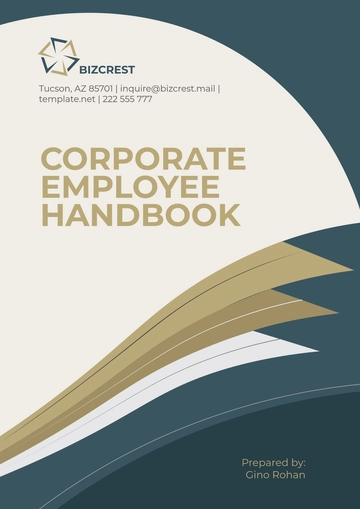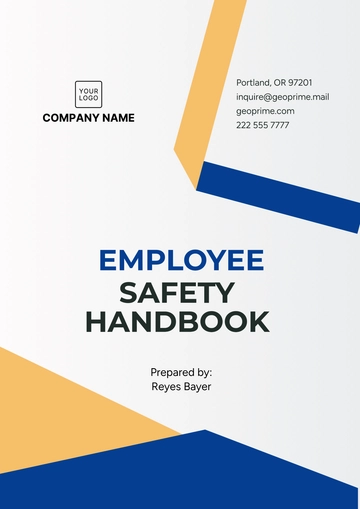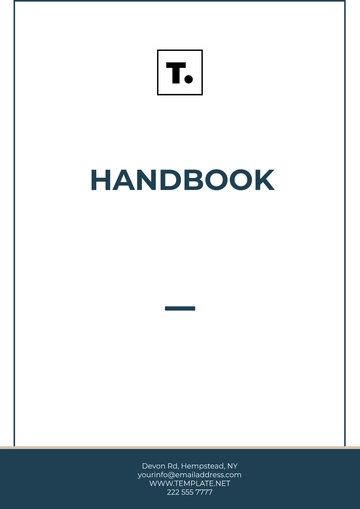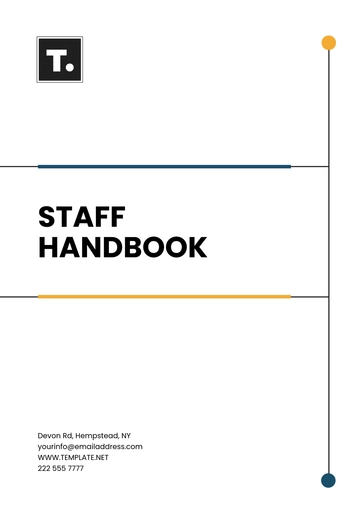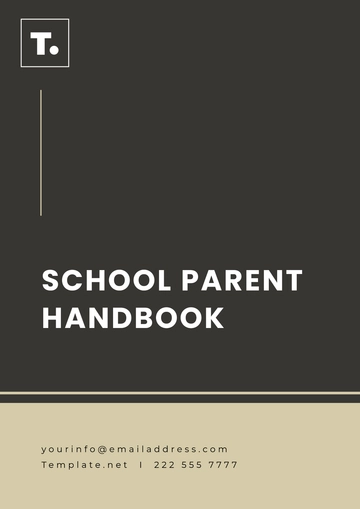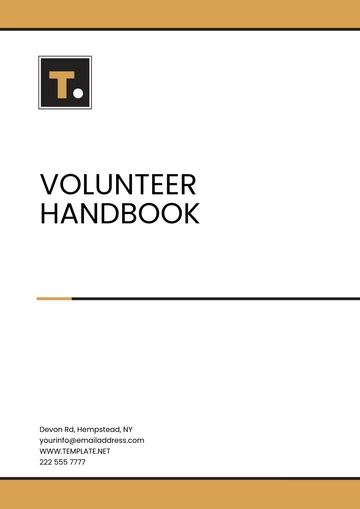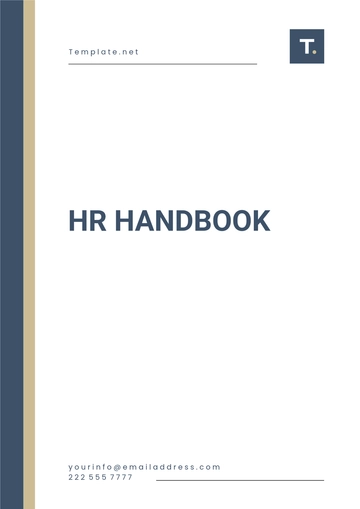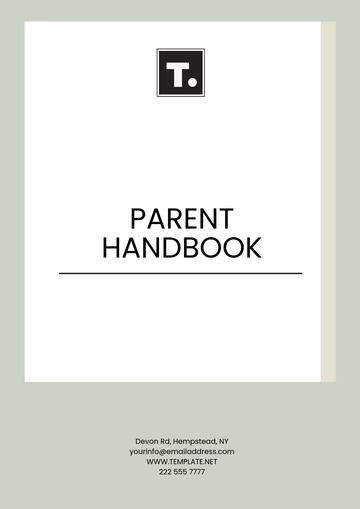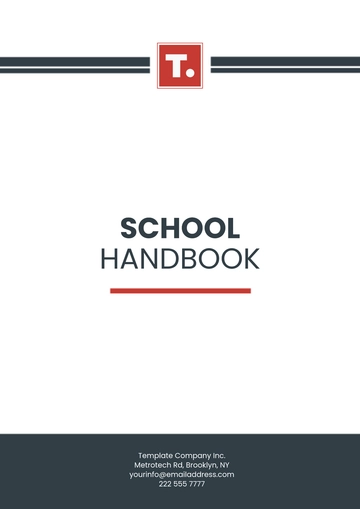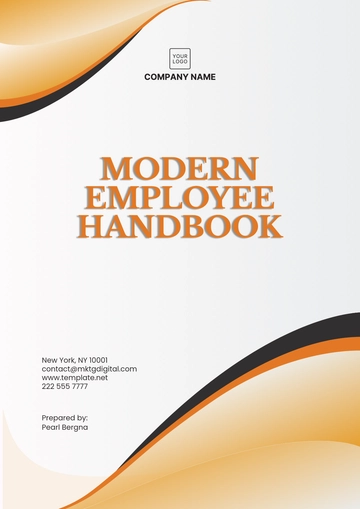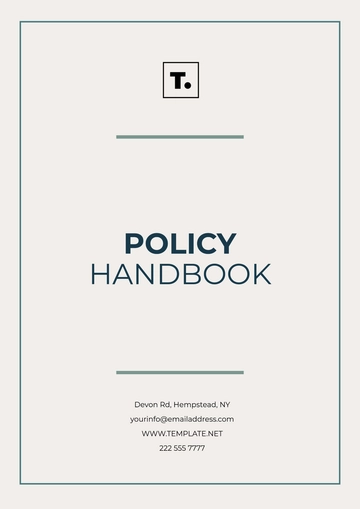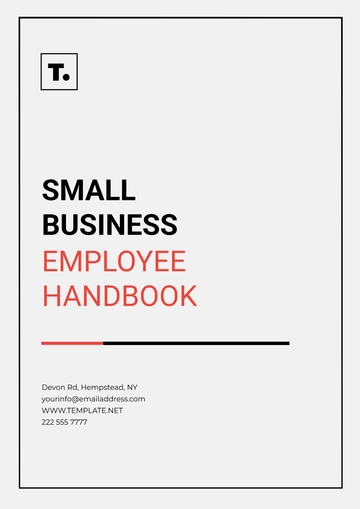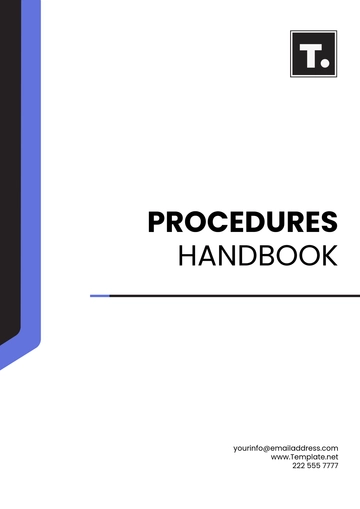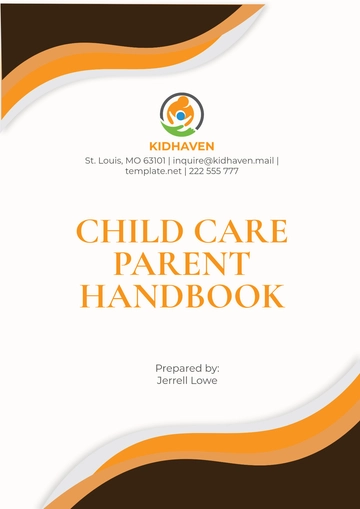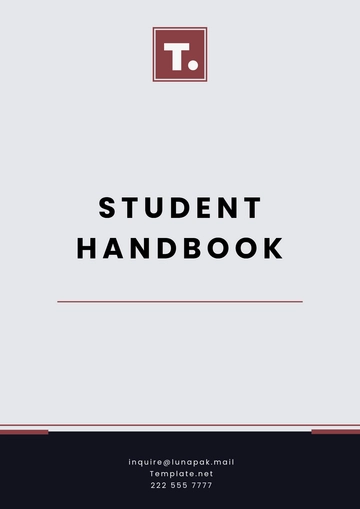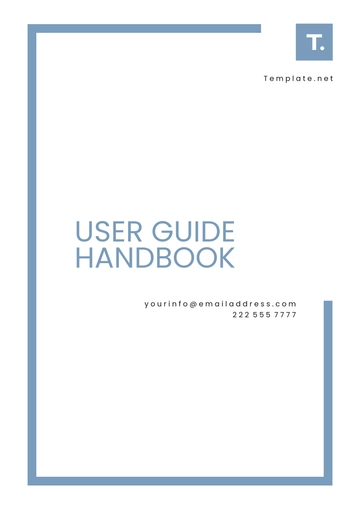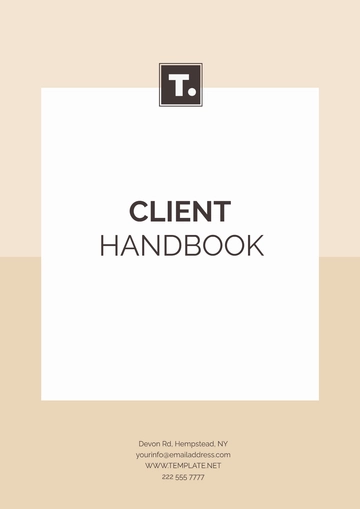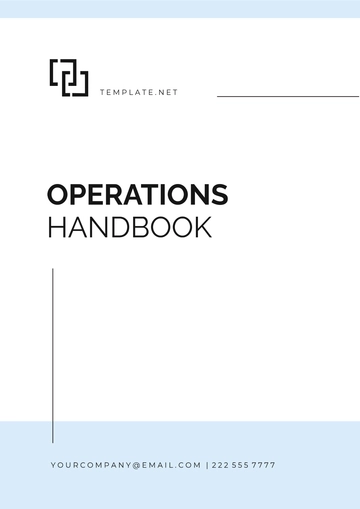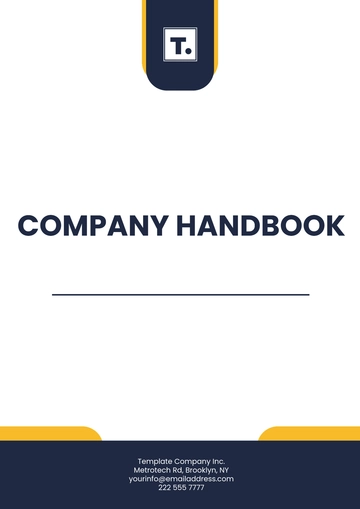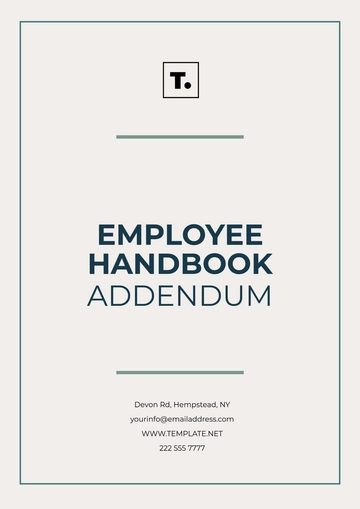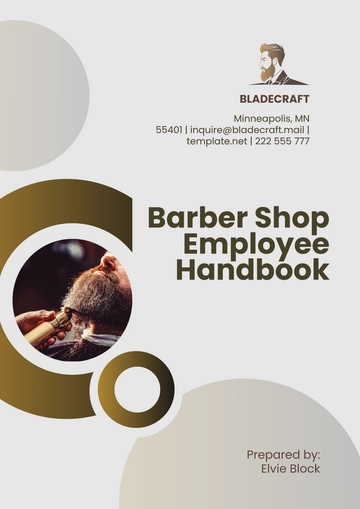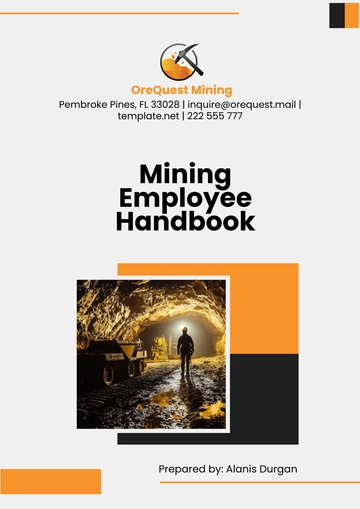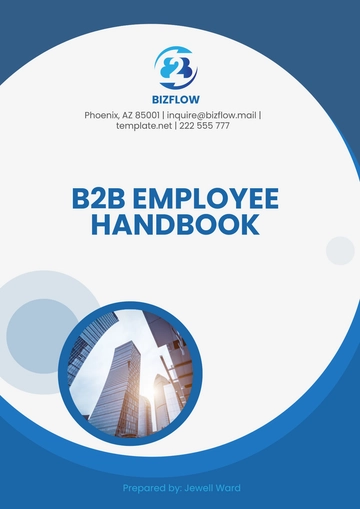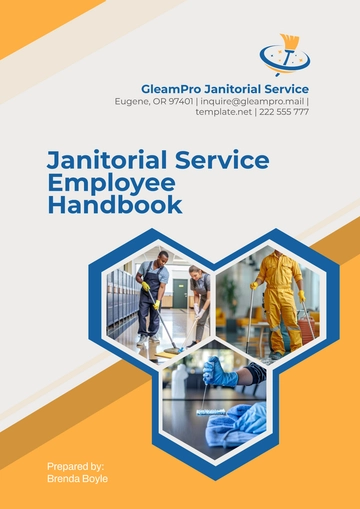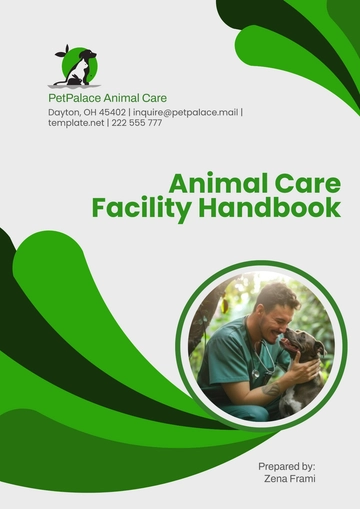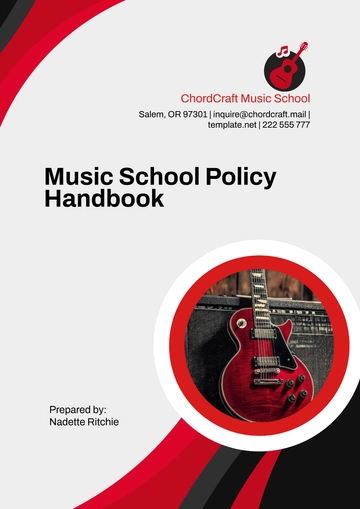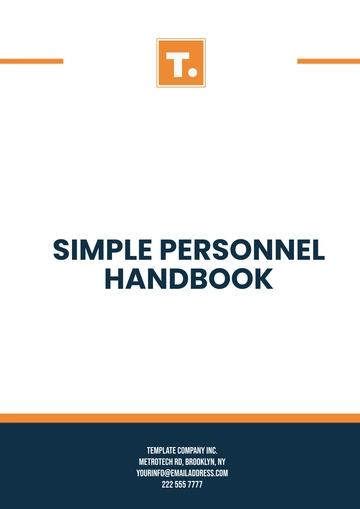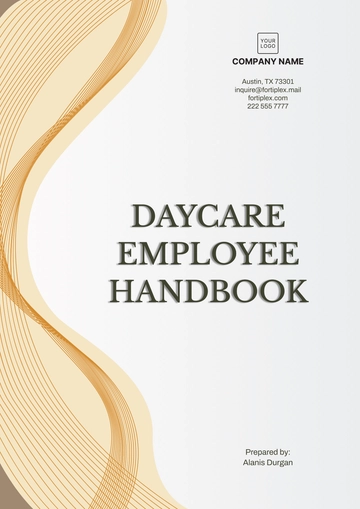Free HR Employee Handbook
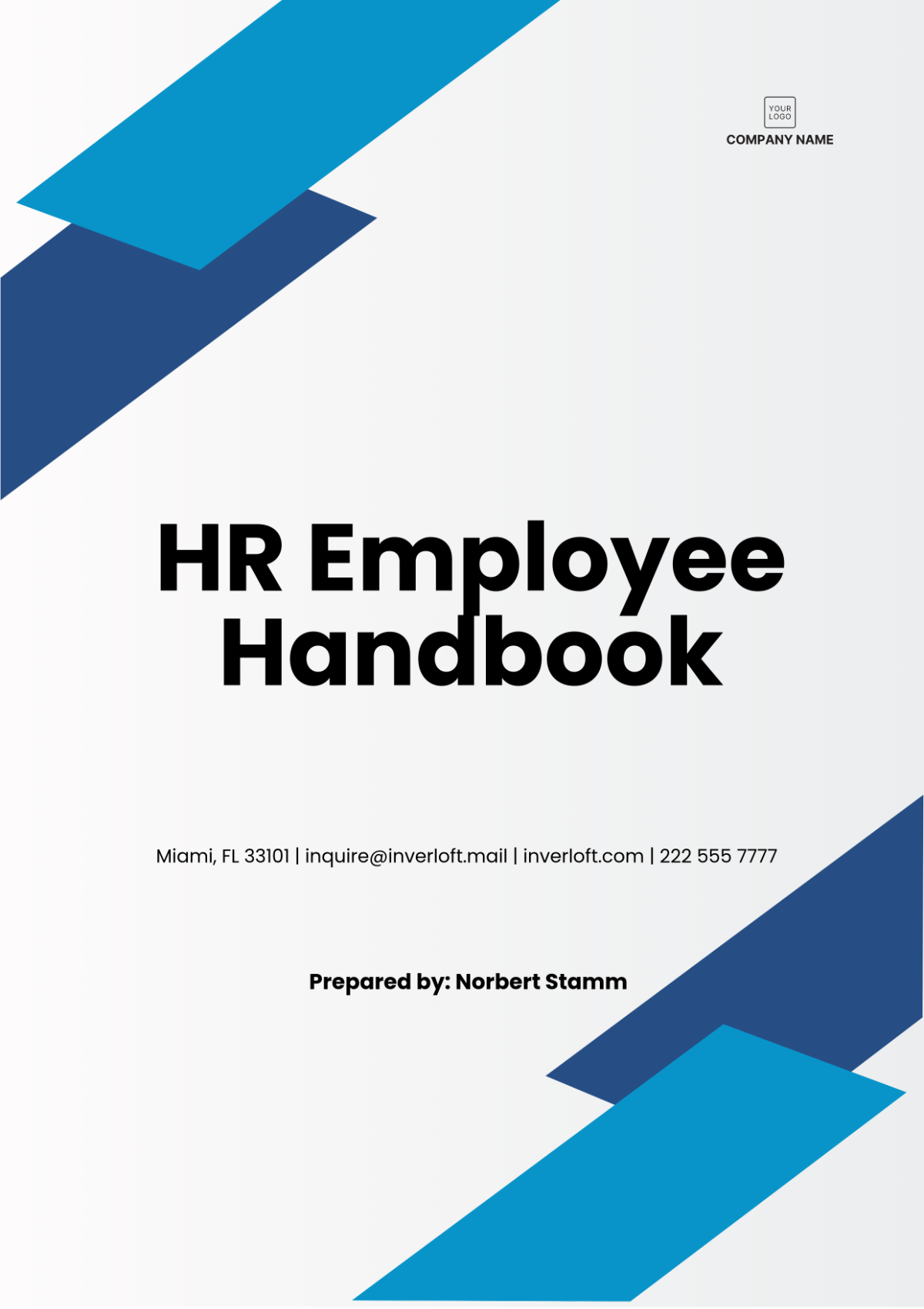
Prepared by: [Your Name]
I. Introduction
A. Welcome to [Your Company Name]
We are thrilled to have you as part of our team. This Employee Handbook has been designed to provide you with essential information about our company, including our culture, policies, and the expectations we have for our employees. At [Your Company Name], we strive to create a positive and productive work environment that fosters growth, innovation, and collaboration. We believe that every employee plays a crucial role in our success, and we are committed to supporting you in your journey with us.
B. Purpose of the Employee Handbook
The purpose of this Employee Handbook is to provide you with a comprehensive guide to [Your Company Name]'s policies, procedures, and benefits. It serves as a resource for understanding your rights and responsibilities as an employee, as well as the company's obligations to you. While this handbook covers a wide range of topics, it is not exhaustive and may be updated periodically to reflect changes in company policy or applicable laws. It is important to familiarize yourself with the contents of this handbook and to refer to it whenever you have questions about your employment.
C. Acknowledgment of Receipt
All employees are required to sign an acknowledgment form confirming that they have received, read, and understood the contents of this Employee Handbook. By signing the acknowledgment, you agree to abide by the policies and procedures outlined herein. This acknowledgment will be kept in your personnel file as a record of your understanding and acceptance of the terms and conditions of your employment with [Your Company Name].
II. Company Overview
A. Mission Statement
At [Your Company Name], our mission is to deliver exceptional products and services that exceed our customers' expectations. We are dedicated to continuous improvement, innovation, and excellence in all that we do. Our commitment to our employees, customers, and community is the foundation of our success.
B. Vision Statement
Our vision is to be a leader in our industry, recognized for our quality, integrity, and customer-centric approach. We aim to create a workplace where employees are empowered to grow and succeed, and where our contributions positively impact the world around us. Together, we strive to achieve sustainable growth and long-term success.
C. Core Values
Our core values guide our actions and decisions as a company. These values include:
Integrity: We conduct our business with honesty, transparency, and respect.
Innovation: We encourage creativity and embrace new ideas to drive progress.
Collaboration: We work together as a team to achieve common goals.
Excellence: We are committed to delivering high-quality results in everything we do.
Customer Focus: We prioritize the needs and satisfaction of our customers above all else.
III. Employment Policies
A. Equal Employment Opportunity (EEO)
[Your Company Name] is an equal-opportunity employer. We are committed to providing a work environment that is free from discrimination and harassment. We do not discriminate against employees or applicants based on race, color, religion, gender, sexual orientation, national origin, age, disability, or any other protected characteristic. Our EEO policy applies to all aspects of employment, including recruitment, hiring, promotions, compensation, benefits, and termination.
B. Anti-Discrimination and Harassment Policy
We are committed to maintaining a workplace where all employees are treated with dignity and respect. Harassment of any kind, including sexual harassment, is strictly prohibited. Employees who believe they have been subjected to discrimination or harassment are encouraged to report the incident immediately to their supervisor or the Human Resources department. All complaints will be investigated promptly and confidentially.
C. Employee Classifications
Employees at [Your Company Name] are classified into various categories based on their employment status. These classifications include:
Full-Time Employees: Employees on a 40-hour workweek schedule.
Part-Time Employees: Employees who work less than 30 hours per week.
Temporary Employees: Employees hired for a specific project or a limited period.
Contract Employees: Independent contractors or freelancers who provide services to the company on a contract basis.
Understanding your classification is important as it determines your eligibility for certain benefits and policies.
D. Employment Eligibility and Verification
In compliance with federal law, all employees must provide proof of their eligibility to work in the United States. You will be required to complete Form I-9 and present appropriate documentation, such as a passport or Social Security card, within the first three days of employment. Failure to provide the necessary documentation may result in termination of employment.
E. Probationary Period
All new employees are subject to a probationary period of 90 days from the date of hire. During this period, your performance and suitability for the position will be evaluated. The probationary period allows both the company and the employee to assess the fit for the role. At the end of the probationary period, your employment status will be reviewed, and you may be confirmed as a regular employee.
IV. Workplace Conduct
A. Code of Conduct
At [Your Company Name], we expect all employees to uphold the highest standards of professionalism and ethical behavior. The Code of Conduct outlines the expectations we have for our employees, including:
Treating colleagues, customers, and vendors with respect and courtesy.
Acting with honesty and integrity in all business dealings.
Avoiding conflicts of interest and disclosing any potential conflicts to management.
Complying with all company policies, procedures, and applicable laws.
Failure to adhere to the Code of Conduct may result in disciplinary action, up to and including termination.
B. Attendance and Punctuality
Regular attendance and punctuality are essential to the smooth operation of [Your Company Name]. Employees are expected to report to work on time and to be present for their scheduled shifts. If you are unable to attend work or will be late, you must notify your supervisor as soon as possible. Excessive absenteeism or tardiness may result in disciplinary action.
C. Dress Code and Personal Appearance
Employees are expected to maintain a professional appearance that reflects the image of [Your Company Name]. The dress code varies depending on your role and department. In general, business casual attire is appropriate for most office settings, while certain positions may require specific uniforms or safety gear. Personal grooming and hygiene are also important to maintain a professional image.
D. Workplace Violence Prevention
[Your Company Name] is committed to providing a safe and secure work environment. We have a zero-tolerance policy for workplace violence, including threats, intimidation, and physical harm. Employees who feel threatened or witness any form of violence should report the incident immediately to their supervisor or Human Resources. All reports will be taken seriously and investigated thoroughly.
E. Substance Abuse Policy
The use, possession, or distribution of illegal drugs or alcohol on company premises is strictly prohibited. Employees are expected to perform their duties free from the influence of drugs or alcohol. Violation of this policy may result in disciplinary action, including termination. Employees who are struggling with substance abuse are encouraged to seek assistance through the Employee Assistance Program (EAP).
V. Compensation and Benefits
A. Salary and Wages
[Your Company Name] is committed to providing competitive compensation that reflects the skills, experience, and performance of our employees. Salaries are reviewed annually as part of the performance review process. Employees may also be eligible for bonuses or other incentives based on individual and company performance.
B. Overtime Pay
Non-exempt employees are eligible for overtime pay under federal and state laws. Overtime is paid at one and a half times the regular hourly rate for all hours worked over 40 in a workweek. All overtime must be approved in advance by your supervisor.
C. Performance Reviews
Performance reviews are conducted annually to evaluate your job performance, set goals for the coming year, and discuss opportunities for growth and development. The review process includes a self-assessment, supervisor evaluation, and a discussion of your accomplishments, challenges, and future objectives.
D. Employee Benefits
[Your Company Name] offers a comprehensive benefits package to eligible employees, including:
Health Insurance: Medical, dental, and vision coverage.
Retirement Plan: 401(k) plan with company matching contributions.
Life and Disability Insurance: Basic life insurance and long-term disability coverage.
Paid Time Off: Vacation, sick leave, and personal days.
Wellness Programs: Fitness incentives, health screenings, and wellness resources.
Eligibility for benefits may vary based on your employment classification and length of service.
E. Payroll Procedures
Employees are paid on a bi-weekly basis through direct deposit or paper check. Pay stubs are available online through the employee portal. It is your responsibility to review your pay stub for accuracy and to report any discrepancies to the Payroll department immediately.
VI. Time Off and Leave Policies
A. Paid Time Off (PTO)
Paid Time Off (PTO) is provided to eligible employees to use for vacation, personal time, or illness. PTO accrues based on your length of service and employment classification. Employees are encouraged to use their PTO to maintain a healthy work-life balance. Requests for PTO must be submitted in advance and approved by your supervisor.
B. Holidays
[Your Company Name] observes the following holidays:
New Year's Day
Memorial Day
Independence Day
Labor Day
Thanksgiving Day
Christmas Day
Employees who are scheduled to work on a company holiday will receive holiday pay in addition to their regular pay.
C. Family and Medical Leave (FMLA)
Eligible employees may take up to 12 weeks of unpaid leave under the Family and Medical Leave Act (FMLA) for certain family and medical reasons, including the birth or adoption of a child, the care of a family member with a serious health condition, or the employee's serious health condition. Employees are required to provide medical certification and advance notice of their leave request.
D. Sick Leave
Employees are provided with sick leave to cover illness, injury, or medical appointments. Sick leave is separate from PTO and may be used for personal illness or to care for a sick family member. Employees are expected to notify their supervisor as soon as possible when they are unable to report to work due to illness.
VII. Employee Acknowledgment
A. Handbook Receipt Acknowledgment
By signing below, you acknowledge that you have received, read, and understood the policies and guidelines outlined in this Employee Handbook. You agree to adhere to the rules and regulations set forth by [Your Company Name].
B. Agreement to Policies
By signing below, you agree to comply with the policies, procedures, and expectations outlined in this handbook. You understand that failure to adhere to these policies may result in disciplinary action, up to and including termination of employment.
Employee's Signature |
|
- 100% Customizable, free editor
- Access 1 Million+ Templates, photo’s & graphics
- Download or share as a template
- Click and replace photos, graphics, text, backgrounds
- Resize, crop, AI write & more
- Access advanced editor
HR Employee Handbook Template: Ensure clarity and consistency in your workplace with the HR Employee Handbook Template from Template.net. This customizable template covers essential policies and procedures to guide your employees effectively. Editable in our AI Editor Tool, it’s tailored to meet your organization’s unique needs. Download now and create a professional handbook that sets clear expectations!
 Malvina Jones
Malvina Jones